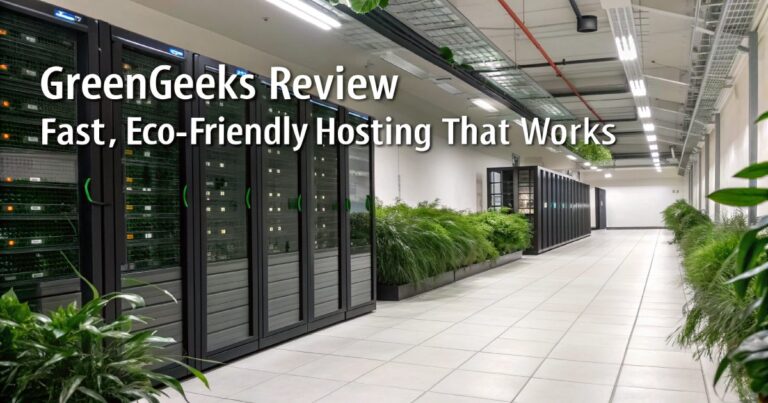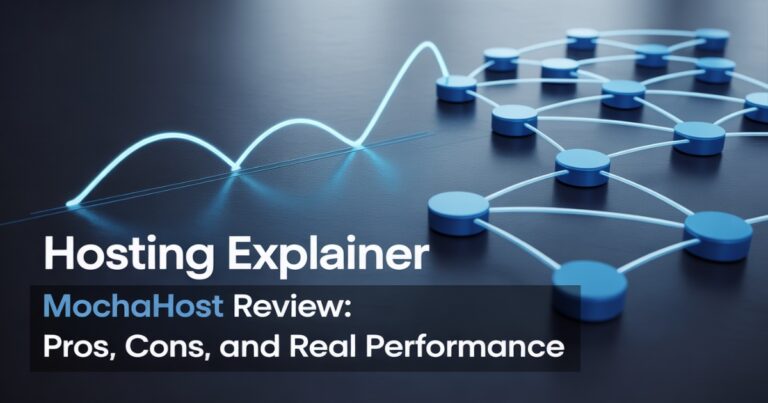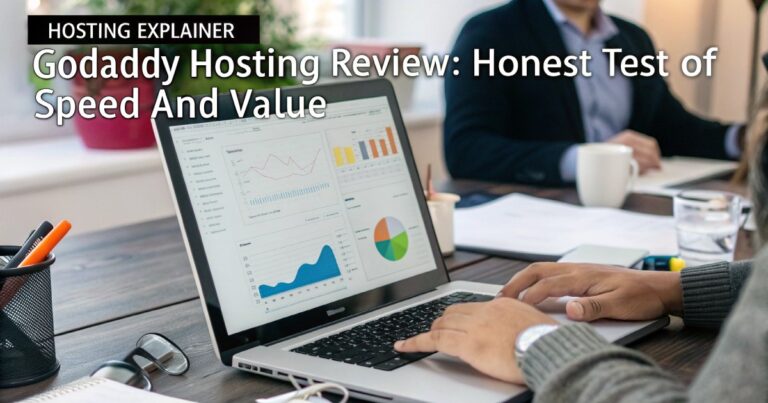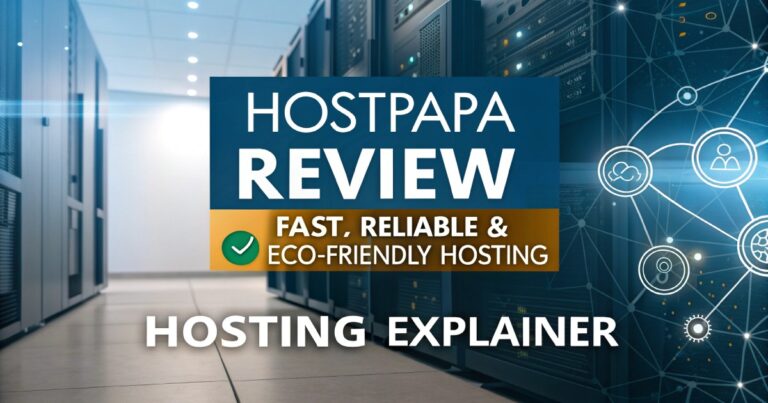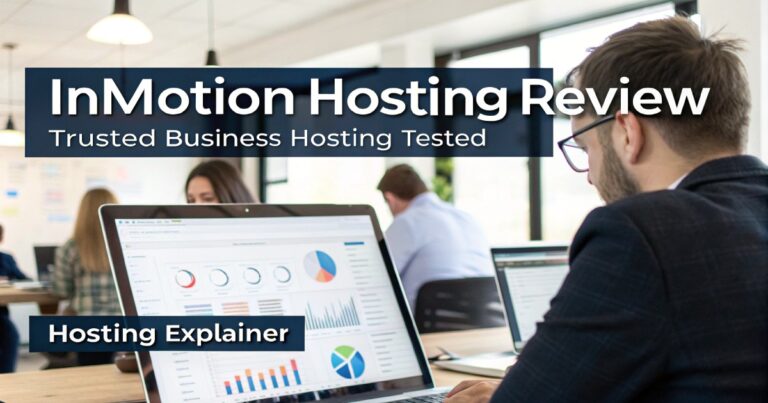DigitalOcean Review 2025: Best Cloud Platform for Developers
When I first started using cloud hosting, I tried almost every big name out there. AWS felt powerful but too complex. Google Cloud was impressive but expensive. Then I found DigitalOcean, and it immediately felt like a cloud built for people who love to build. In this review, I’ll walk you through my hands-on experience with DigitalOcean in 2025 and explain whether it truly deserves to be called the best cloud for developers today.
What is DigitalOcean, and who is it for?
DigitalOcean is a cloud hosting platform designed for developers, startups, and small to medium businesses that want power without the complexity. It offers virtual machines called Droplets, managed databases, storage, and scalable cloud solutions that are simple to set up and control.
Unlike traditional enterprise clouds that overwhelm you with settings, DigitalOcean keeps things clean and focused. It’s made for builders—people who want to deploy an app or a site in minutes instead of spending hours setting up a server.
If you are a developer, freelancer, or startup founder who values speed and simplicity, this platform fits naturally into your workflow.
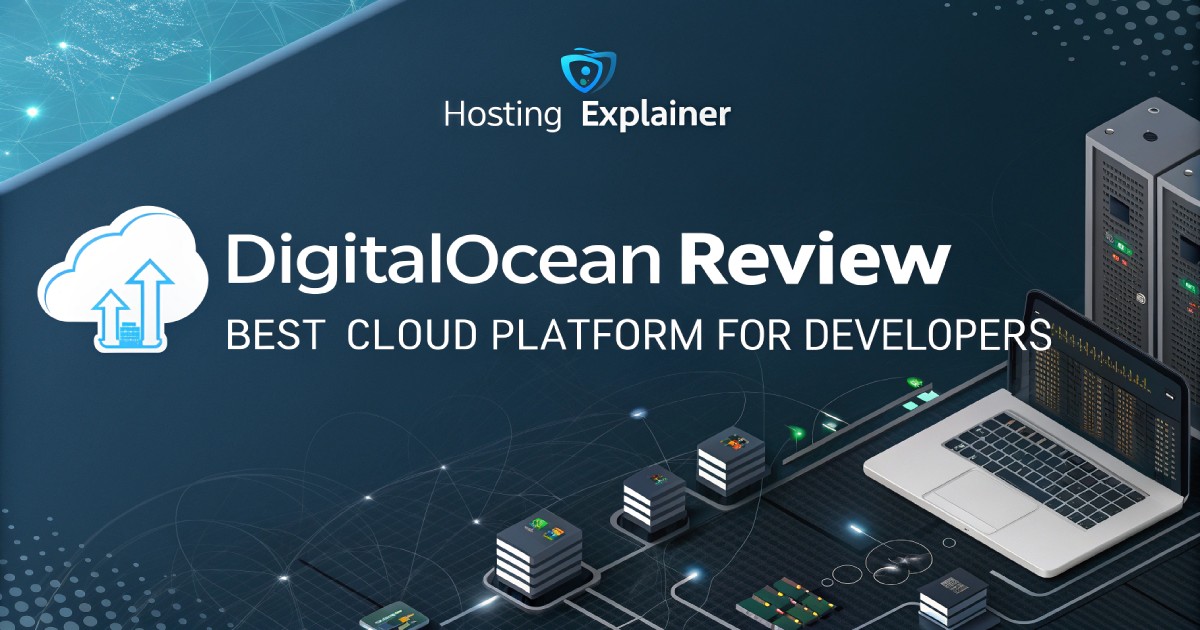
DigitalOcean Features Overview for 2025
DigitalOcean continues to refine its tools each year. Here are the key features you can expect in 2025:
- Droplets: Virtual machines that can run almost any application. They’re fast, reliable, and easy to manage.
- Managed Databases: Support for PostgreSQL, MySQL, Redis, and more. No need to handle updates or backups manually.
- App Platform: A simple solution to build, deploy, and scale web apps without server management.
- Kubernetes: A managed service for container-based applications that reduces setup time dramatically.
- Storage Solutions: Spaces for object storage and volumes for scalable block storage.
- API and CLI Tools: A strong API for automation and developer integrations.
DigitalOcean has also improved its control panel and expanded data centers in North America, Europe, and Asia, giving developers more choices for low-latency hosting.
Performance and Reliability
Performance is often the deal-breaker for any cloud host. DigitalOcean has always had a reputation for speed, and my tests this year confirmed that. Their SSD-based Droplets load websites and applications faster than most competitors in the same price range.
Uptime remains one of the strongest points of the platform. During my use, I didn’t notice a single major outage. DigitalOcean claims a 99.99 percent uptime guarantee, and real-world results come very close to that.
Compared to AWS or Google Cloud, DigitalOcean feels leaner but faster in most small- to mid-size deployments. For developers who care about quick load times, this is a clear advantage.
Pricing and Value for Money in 2025
DigitalOcean’s pricing model is one of the most transparent in the industry. You know exactly what you’ll pay each month, with no surprise bills.
Here’s a quick look at typical 2025 pricing:
| Plan | CPU | Memory | Storage | Price per Month |
|---|---|---|---|---|
| Basic Droplet | 1 vCPU | 1 GB | 25 GB SSD | 6 USD |
| Standard Droplet | 2 vCPU | 4 GB | 80 GB SSD | 24 USD |
| Premium Droplet | 4 vCPU | 8 GB | 160 GB SSD | 48 USD |
There are also managed database and Kubernetes plans that scale based on your needs. When you compare these numbers to AWS or Google Cloud, the difference is clear.
DigitalOcean costs far less for small projects and simple apps. You won’t get every enterprise feature, but for most developers, the trade-off is worth it.
Developer Experience and Ease of Use
One of the best parts about DigitalOcean is its simplicity. The dashboard is clean, intuitive, and fast. Setting up a droplet or deploying an app takes just a few clicks.
I personally love how everything feels designed with developers in mind. The documentation is clear, and the community tutorials are incredibly helpful. Even if you’re new to cloud platforms, you can learn your way around quickly.
For automation, DigitalOcean’s API and command-line tools let you manage everything without touching the dashboard.
It integrates well with GitHub, CI/CD pipelines, and deployment tools, making it ideal for modern workflows. If you value a smooth and frictionless experience, DigitalOcean is one of the easiest platforms to use in 2025.
Security and Support
Security is one of the most critical parts of cloud hosting. DigitalOcean includes built-in firewalls, data encryption, DDoS protection, and two-factor authentication. You can also create automated backups and snapshots to protect your data.
The company’s transparency about security policies builds trust. They regularly publish reports and follow compliance standards like GDPR and SOC 2.
When it comes to support, you can choose from community support, ticket-based help, or a paid premium plan. The community forum remains one of the strongest in the cloud industry, you can find guides, answers, and even code snippets from real developers.
Pros and Cons of DigitalOcean
Every cloud platform has its strengths and trade-offs. Here’s a balanced look at where DigitalOcean stands out and where it falls short.
| Pros | Cons |
|---|---|
| Simple and clean interface | No true free tier |
| Predictable pricing | Limited enterprise-level features |
| Fast SSD servers | Support response can be slow at the basic level |
| Active community and tutorials | Fewer advanced AI and machine learning tools |
| Developer-friendly design | Smaller global infrastructure compared to AWS or Google Cloud |
These pros and cons give a balanced picture. DigitalOcean’s main strength lies in serving developers who value control and clarity over complexity.
DigitalOcean vs. Competitors
Before choosing a cloud platform, it helps to see how DigitalOcean stacks up against its main competitors. Here’s a quick comparison based on performance, usability, and value.
| Feature | DigitalOcean | AWS (Amazon Web Services) | Google Cloud | Linode & Vultr |
|---|---|---|---|---|
| Ease of Use | Very simple, beginner-friendly | Complex setup, steep learning curve | Moderate, technical setup | Simple but less polished |
| Pricing | Transparent, predictable | Complicated, usage-based | Expensive for small projects | Affordable and straightforward |
| Performance | Fast SSD servers, low latency | Excellent but depends on configuration | High performance, optimized for enterprise | Solid performance, slightly lower consistency |
| Developer Focus | Built specifically for developers and startups | Enterprise-focused | Business and data-focused | Developer-oriented but smaller ecosystem |
| Community Support | Strong, active developer communit | Extensive but corporate | Moderate, less personal | Smaller but growing communities |
| Best For | Developers, startups, small teams | Large enterprises, complex infrastructure | Data-heavy or AI-driven projects | Budget-conscious developers |
If you’re running a personal project or launching a startup, DigitalOcean offers the best mix of performance, price, and simplicity without unnecessary complexity.
Who Should Use DigitalOcean
DigitalOcean is best suited for developers, startups, and small businesses that need affordable, reliable cloud hosting. It’s ideal for hosting apps, APIs, websites, and databases without dealing with enterprise-level complexity.
If you’re building a SaaS product or learning DevOps, you’ll appreciate how quickly you can experiment and deploy.
However, if your organization needs deep enterprise integrations or compliance-heavy infrastructure, AWS or Azure might still be better choices.
Frequently Asked Questions
1. Is DigitalOcean good for beginners?
Yes, it’s one of the easiest cloud platforms to start with. The interface is simple, and community guides help you every step of the way.
2. What makes DigitalOcean different from AWS or Google Cloud?
DigitalOcean focuses on simplicity and affordability. It’s made for developers who want to deploy quickly without complex configuration.
3. Can I host a WordPress site on DigitalOcean?
Yes, and it works beautifully. You can install WordPress using a one-click setup or a managed app.
4. Does DigitalOcean offer free credit for new users?
Yes, new users usually get a small amount of free credit to test services before paying.
5. Is DigitalOcean secure for business apps?
Absolutely. It includes built-in firewalls, encrypted storage, and strict access controls.
6. Is DigitalOcean scalable for growing startups?
Yes, you can start small and scale Droplets, databases, and apps as your traffic grows.
Is DigitalOcean Worth It in 2025?
After testing multiple platforms, I can confidently say that DigitalOcean remains one of the best cloud solutions for developers in 2025.
It’s not trying to compete with AWS or Google Cloud in scale. Instead, it focuses on clarity, usability, and community-driven support. That’s what makes it special.
For developers who want reliable performance, transparent pricing, and straightforward tools, DigitalOcean is absolutely worth it.
- DigitalOcean continues to be one of the best choices for developers in 2025.
- It offers a perfect mix of affordability, reliability, and simplicity.
- The platform is ideal for startups, developers, and small teams.
- Strong documentation, community support, and predictable pricing make it stand out.
If you want a cloud platform that feels built for real people, not just enterprises, DigitalOcean is a strong bet this year.

